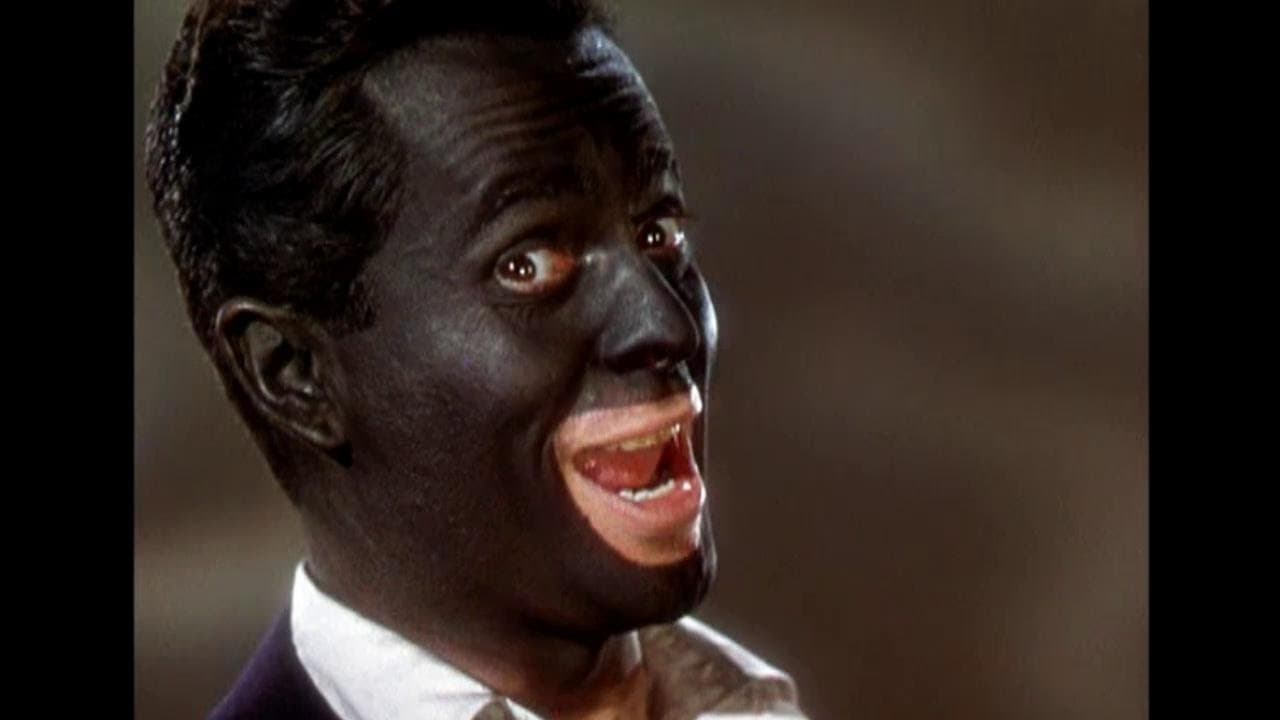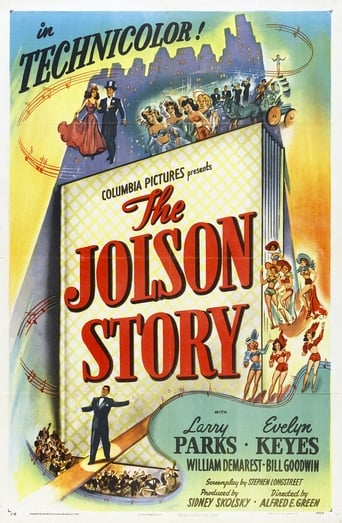

disgusting, overrated, pointless
... View MoreBetter Late Then Never
... View MoreIt is an exhilarating, distressing, funny and profound film, with one of the more memorable film scores in years,
... View MoreThe film's masterful storytelling did its job. The message was clear. No need to overdo.
... View MoreMost of the reviewers here give this movie a great review and deservedly so. Most of the viewers here are also probably close to my generation....born around the 1950s. No doubt this film is extremely entertaining, however, to be too comfortable with the blackface numbers and the bulging eyes and grimaces shows a bit of disconnect from people who see this film for the first time today. In addition, this movie is so far from fact, typical for Hollywood biopics of its day. The retiring to the farm and being unhappy cliché is right out of Yankee Doodle Dandy. In addition, if you have seen the story of George Gershwin from that era, the father, usually Jewish is again played up a bit buffoonish.One very interesting thing about the film is the downer ending which most Hollywood moguls of the day would have had rewritten. It's an extremely entertaining film for those of us used to watching movies of that era...but it is cliché ridden and a story that's truly from fantasy land....but oh, that singing!! It's success spawned a sequel, equally entertaining.
... View MoreThe world turns it's head one day when this musical artist went to work on Broadway. Seeing this movie called " The Jolson Story " is a must for all classic movie lovers. The incredible combination of Larry Parks and Scotty Beckett as Asa Jolson was a stroke of sheer genius. This energetic film legacy of the 30's superstar is to say the least fantastic. It begins with the early roots of the boy Asa and his start in the evolving burlesque show with Steve Martin (William Demarest). Although Martin is a combination of several key people in Al's real life, the magical rise of Jolson is due entirely to his electrically charge talent which he exhibited on film. However, once the legendary tunes begin to lay the foundation for the Jazz Singer the rest they say is history. Although much of the actual history of the great singer is concocted or at least structured, the heart remains that of Jolson and one can easily forgive the short cuts to be entertaining. Nothing would have pleased the great stage entertainer more than to repeat his life for a new audience such as we. A lively rendition and enthusiastically recommended to anyone with a ear for our American Broadway heritage in the form of Al Jolson. ****
... View MoreThis movie is fascinating in its way, but not so much for its basic storyline; it is obviously a glossed-over version of a real life and there is practically no conflict or dramatic tension in the movie. It is more interesting as a portrayal of an energetic entertainer who clearly appealed greatly to audiences of his time, but his style of entertainment is so bizarre and dated by today's standards that he has completely fallen off of the radar. The "blackface" performance mode is cringe-inducing to watch now, as is the hokey singing style and oft-imitated gestures and phrasing; this makes the movie too politically incorrect to be aired often.
... View MoreAl Jolson can be considered to show business what Babe Ruth is to baseball, Hank Williams to country music, Jordan to basketball, Gretzsky to hockey - in a field with many prominent and great figures over many decades, still the one individual who stands at the top among his peers. Although he was far from the altruistic person portrayed here, this doesn't diminish his greatness. Neither do the fictionalized aspects of the story, which stretch the facts well beyond the normally wide boundaries common to biographical pictures, especially from the 1930's, through the depression and WW II years, into the '50's. For example, the William Demarest character is an obvious "composite" of others with whom Jolson appeared early in his career - his brother (never even hinted in the story) and other partners, before he joined Dockstader's minstrel show. In actuality, his mother died when he was eight - several years before the time period where this story begins; and yet she is a key character in the film, commenting upon, advising, and to a degree influencing some of Al's decision process - even when he is an adult. And the Evelyn Keyes character ("Julie," but actually Ruby Keeler) was hardly his first love (as indicated by the movie), but his third wife; they married when he was nearing his mid-40's and she had just turned 19, and after, not during, his shooting "The Jazz Singer." In this film, William Demarest, now his manager, advises him to have some fun, as if he didn't even date for concentrating so much on just performing - which in actuality would have been a period in his life when he was well into his second marriage (or even after it might have ended). A friend of mine, who, while not famous, has starred with his wife as an entertainer in Branson and other venues, appeared in movies and television, and is an avid member of "The Jolson Society," heard a story from someone who at one time had been in the Jolson entourage. Far from eschewing feminine company for love of only performing (as indicated in the film) Jolson is said to have often engaged the "companionship" of a couple of showgirls in his dressing room to help him relax prior to a performance. (He also said that Ruby Keeler had indicated the accurately-portrayed scene of his rising from the audience to sing during her show was not simply a loving, charitable act. Rather, it was a reflection of Al's extremely immense ego, and his desire for the spotlight to be on him as much as possible.) And the shows he headlined on Sundays, largely for other entertainers of Broadway, weren't solely the benevolent act portrayed here. He supposedly often engaged in banter from the stage, pointing-out to those assembled, the contrast between his level of success and theirs, and the like. Finally, the movie indicates "Julie's" absolute desire completely to retire, while Jolson is depicted as doing so to accommodate this strong, obsessively-portrayed need on her part. Actually, at this time, in real life, Ruby Keeler was barely 30, and with a far busier career than his. In addition to the movie depicting this contrary to fact, even the way this fiction is shown is somewhat silly. He wants to stay home, "as usual," and strongly indicates this near the film's close. But the Bill Goodwin (Broadway producer) character, visiting their secluded home, and even Jolson's parents, insist on going to a night club. Then, when he reluctantly accedes to the emcee's request to sing, and gets caught-up in once again performing on-stage (after a supposedly long lapse, of years), Julie summarily walks out while he's singing - and then later (at the outset in the sequel), even his father chides him about it, clearly indicating the blame is his alone. But ... all these fictional histrionics aside, this movie is a great work about the most iconic of entertainers. The music is marvelous - and the sequel 3-years later (unique among Hollywood biopics), is an outstanding continuation, beginning precisely where this original leaves off. Many have criticized this shorter follow-up as being inferior to the original. I would characterize it as great, also - perhaps just not quite as great, and recommend one view both pictures in tandem. Give both 10 stars; this original would be 10 +.
... View More